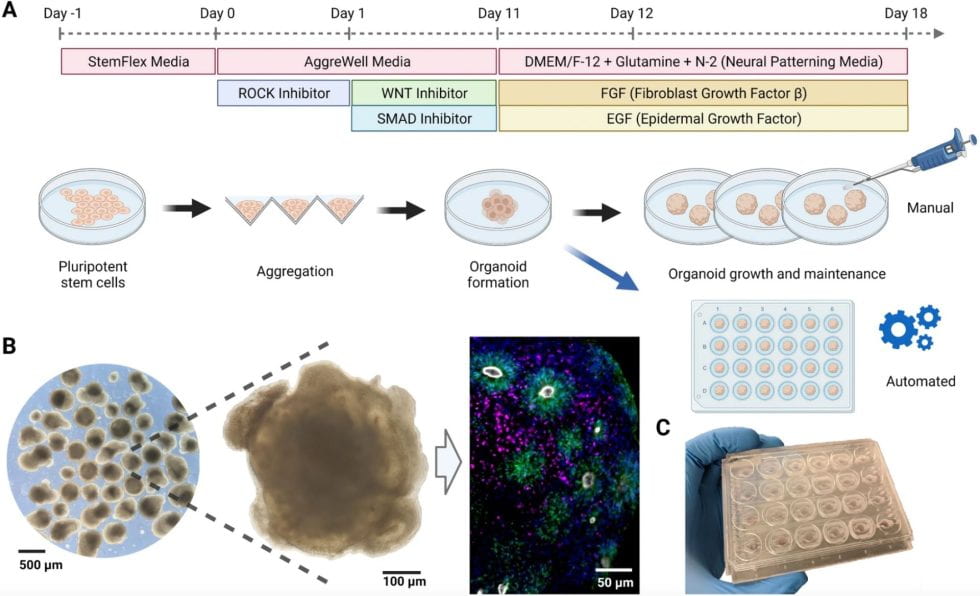Modular automated microfluidic cell culture platform reduces glycolytic stress in cerebral cortex organoids
Spencer T. Seiler, Gary L. Mantalas, John Selberg, Sergio Cordero, Sebastian Torres-Montoya, Pierre V. Baudin, Victoria T. Ly, Finn Amend, Liam Tran, Ryan N. Hoffman, Marco Rolandi, Richard E. Green, David Haussler, Sofie R. Salama & Mircea Teodorescu.

Overview of the human cerebral organoid generation protocol.
Abstract
Organ-on-a-chip systems combine microfluidics, cell biology, and tissue engineering to culture 3D organ-specific in vitro models that recapitulate the biology and physiology of their in vivo counterparts. Here, we have developed a multiplex platform that automates the culture of individual organoids in isolated microenvironments at user-defined media flow rates. Programmable workflows allow the use of multiple reagent reservoirs that may be applied to direct differentiation, study temporal variables, and grow cultures long term. Novel techniques in polydimethylsiloxane (PDMS) chip fabrication are described here that enable features on the upper and lower planes of a single PDMS substrate. RNA sequencing (RNA-seq) analysis of automated cerebral cortex organoid cultures shows benefits in reducing glycolytic and endoplasmic reticulum stress compared to conventional in vitro cell cultures.
Read on Scientific Reports.